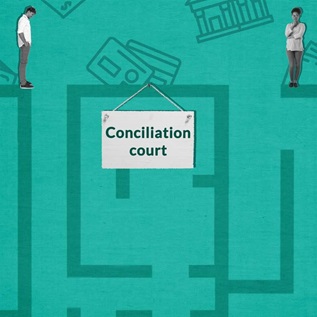Citibank Adopts Pew's Summary of Checking Account Terms & Fees
Pew Commends Citibank and Town and Country Bank for Increasing Transparency for Consumers
Citibank is the third major bank to announce it will voluntarily adopt Pew's simple overview for checking accounts. With the goal of making checking account terms and fees more transparent and easier for consumers to understand, The Pew Charitable Trusts created a short and concise model disclosure form as a guide for financial institutions to implement.
Town and Country Bank of Springfield, Illinois, also recently introduced Pew's simple disclosure to their customers.
“While checking accounts serve as the cornerstone of household financial management, a lack of transparency of key terms and fees can often expose customers to high, unexpected costs,” said Susan Weinstock, director of Pew's Safe Checking in the Electronic Age Project. “We applaud banks, such as Citi, for providing their checking account holders with information in an easy-to-understand format, and we encourage other financial institutions to adopt our simple form so that consumers can better understand their account.”
Currently, most financial institutions do not summarize key information in a simple, user-friendly format, making it cumbersome for consumers to find important policies and fees. In fact, Pew's latest research, Still Risky: An Update on the Safety and Transparency of Checking Accounts, found disclosure documents among the nation's 12 largest banks have a median length of 69 pages. A single, standardized form, such as Pew's model disclosure box, as a preface to the larger document, allows customers to comparison shop and determine which checking account best meets their needs.
Reflecting a national effort to make checking accounts safer and more transparent, this comes at a time when the Consumer Financial Protection Bureau (CFPB) has begun to study the impact of key banking practices on consumers. Pew urges the CFPB to enact the following reforms by requiring financial institutions to:
- summarize information about checking account terms and fees in a concise, uniform format;
- provide account holders with clear, comprehensive terms and pricing information for all available overdraft options;
- make overdraft penalty fees reasonable and proportional to the financial institution's costs in providing the overdraft loan; and
- post deposits and withdrawals in a fully disclosed, objective, and neutral manner that does not maximize overdraft fees.
TD Bank, Chase, Illinois' Inland Bank, University of Illinois Employees Credit Union, Tennessee's Eastman Credit Union, North Carolina State Employees' Credit Union, and Pentagon Federal Credit Union all voluntarily adopted Pew's model disclosure in the past year.
The Safe Checking in the Electronic Age Project aims to restore transparency, fairness, responsibility, and free market principles to one of the most common consumer financial products – the checking account.
The Pew Charitable Trusts is a nonprofit organization that applies a rigorous, analytical approach to improve public policy, inform the public, and stimulate civic life.











